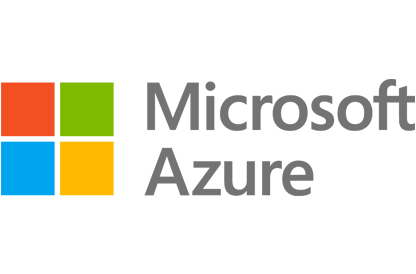What is information management?

Overview
Information management is a critical discipline in today's information-driven business world. It encompasses the systematic organization, storage, protection, and utilization of information within an organization, involving technologies such as security, cloud, and artificial intelligence (AI). As businesses increasingly rely on data to make strategic decisions, effective information management has become a cornerstone of success across industries.
Information management delivers the secure data management needed for AI. It offers integration across major business applications with the flexibility to deploy on-premises, in the public cloud, in the private cloud, or with cloud APIs. And it offers the confidence that comes from advanced end-to-end security.
Key aspects of information management:
Information Management
How does information management benefit your business?
Effective information management benefits organizations by delivering:
- Informed decision making: Access to accurate, timely information enables better strategic choices.
- Operational efficiency: Streamlined information processes reduce redundancy and save time.
- Regulatory compliance and risk mitigation: Proper information management protects against data breaches and helps with adherence to industry-specific regulations, avoiding penalties and reputation risks.
- Competitive advantage: Leveraging information effectively can lead to innovation and market leadership.
- Knowledge retention: Capturing and preserving institutional knowledge supports continuity and growth.
- Better AI outcomes: Success of AI projects depends largely on the quality of the data used. Information management organizes, governs, protects, and integrates information so that it’s AI-ready.
The following are answers to some important questions about information management.
What is the difference between data management and information management?
Data management focuses specifically on the handling of raw data--the facts, figures, and statistics that form the basis of information. It involves processes like data collection, storage, and maintenance.
Information management, on the other hand, is a broader concept that goes beyond data management. It deals with how data is transformed into meaningful information and how that information is used within an organization. This includes more strategic capabilities like protecting data, ensuring compliance, automating processes, and enhancing decision making.
For example, data management might involve storing customer purchase records in a database. Information management tools would then use this data to derive insights about customer behavior, create targeted marketing strategies, and inform product development decisions.
In essence, data management is a subset of information management. While data management ensures the accuracy and accessibility of raw data, information management focuses on making that data useful and actionable for the organization.
How does knowledge management fit into information management?
Knowledge management is a crucial component of information management that focuses on capturing, organizing, and leveraging the collective wisdom and experience within an organization. It goes beyond managing explicit information to include tacit knowledge—the insights, skills, and expertise that reside in employees' minds.
Within the broader context of information management, knowledge management serves several key functions:
- Preservation of institutional knowledge: It helps ensure that valuable insights and experiences are not lost when employees leave or retire.
- Facilitation of learning and innovation: By making knowledge easily accessible, it supports continuous learning and fosters innovation within the organization.
- Enhancement of decision making: It provides decision-makers with access to a wealth of experience and best practices, leading to more informed choices.
- Improvement of operational efficiency: Shared knowledge can help avoid reinventing the wheel while streamlining processes and reducing redundant efforts.
Knowledge management typically involves creating systems and cultures that encourage knowledge sharing. This might include implementing mentoring programs, creating knowledge bases or wikis, fostering communities of practice, and using technology solutions to capture, integrate, and share knowledge.
For example, a software development company might use knowledge management practices to document coding best practices, troubleshooting techniques, and project management insights. This knowledge can then be shared across teams, improving overall productivity and quality of work.
What is AI information management?
AI information management is the application of artificial intelligence technologies to enhance and optimize the processes of collecting, organizing, storing, analyzing, and utilizing information within an organization. It typically includes the following:
- Data collection and integration: AI-powered data crawlers and connectors gather information from various sources and provide automated data cleansing and normalization.
- Intelligent classification and tagging: The categorization of documents and data is automated using machine learning algorithms. Natural language processing (NLP) provides content analysis and metadata generation.
- Advanced search and retrieval: These capabilities deliver AI-powered semantic search and contextual understanding of user queries.
- Predictive analytics: Machine learning models forecast trends and patterns, and anomalies are detected in data streams.
- Automated insights generation: AI-driven data analysis extracts meaningful insights along with automated report generation and data visualization.
- Knowledge graph creation: AI assists mapping of relationships between different pieces of information and dynamically updates knowledge bases.
- Natural language processing: Text is summarized and key information extracted, and textual data can be analyzed for sentiment.
- Intelligent process automation: Delivers AI-driven workflow optimization and automated decision-making based on predefined rules and machine learning
- Enhanced security and compliance: AI improves threat detection and data privacy protection while automating compliance checking and reporting.
- Personalized information delivery: Offers AI-driven content recommendations based on user behavior and preferences.
- Conversational AI: Chatbots and virtual assistants help with information access and basic query handling, while natural language interfaces facilitate database querying.
- Continuous learning and improvement: AI systems learn from user interactions and feedback and automate updating of classification models and knowledge bases.
AI information management aims to reduce manual effort, improve accuracy, and provide more intelligent and context-aware information handling. It can significantly enhance decision-making processes, increase operational efficiency, and provide a competitive edge in data-driven business environments.
For example, an e-commerce company could use AI information management to automate aspects of its product catalog management, improve customer service with chatbots, predict demand and optimize inventory levels, and learn from interactions to improve search results over time.
How does information management prepare data for AI?
Information management plays a crucial role in preparing data for AI in the following ways:
- Data collection: Gathering relevant data from various sources.
- Data cleaning: Removing errors, inconsistencies, and duplicates.
- Data integration: Combining data from multiple sources into a unified format.
- Data reduction: Selecting relevant features and reducing data dimensionality.
- Data labeling: Annotating data to provide context for supervised learning.
- Data storage: Organizing data in efficient databases or data warehouses.
- Data security: Implementing measures to protect sensitive information.
- Data quality assurance: Ensuring data accuracy, completeness, and consistency.
- Data governance: Establishing policies and procedures for data management.
These steps help create high-quality, structured datasets that AI systems can effectively use to produce better results.
For example, a telecommunications company that wants to use AI to help predict customer churn could first use information management tools to gather data from various sources, clean the data, identify the highly relevant data, integrate it into a single dataset, and ensure that the data is protected and compliant. The company would then get better results when applying AI to help it understand which customers they might be at risk of losing and why.
How does information management contribute to IT security and risk mitigation?
Information management helps enhance IT security and mitigate risks in several ways:
- Access control and authentication: Robust information management systems implement granular access controls, ensuring that only authorized personnel can access sensitive data. This might include multi-factor authentication, role-based access control, and regular access audits.
- Data classification and protection: By classifying data based on its sensitivity and importance, organizations can implement appropriate protection measures. For example, highly sensitive data might be encrypted both at rest and in transit, while less critical data might have standard protection.
- Threat detection and response: Centralized information management allows for more effective monitoring and analysis of security events. Security Information and Event Management (SIEM) systems can correlate data from various sources to detect potential threats and trigger rapid responses.
- Compliance management: Information management systems help track and enforce compliance with various regulatory standards (like GDPR, HIPAA, or PCI-DSS). They can automate compliance reporting and alert administrators to potential violations.
- Incident response and recovery: In the event of a security incident, well-managed information systems enable quicker and more effective responses. Detailed logs and system information can help identify the scope of a breach, while backup and recovery processes ensure business continuity.
- Patch management: By maintaining up-to-date information about all systems and software versions, IT teams can ensure timely application of security patches, reducing vulnerabilities.
- Third-party risk management: Information management systems can help track and manage the risks associated with third-party vendors, ensuring they meet the organization's security standards.
For example, a healthcare provider might implement a comprehensive information management system that not only secures patient data in compliance with HIPAA regulations but also monitors access patterns to detect potential data breaches. The system could automatically flag unusual access attempts, enabling the IT security team to investigate and respond promptly to potential threats.
How does information management support information security and governance?
Information security and governance are crucial components of information management that focus on protecting information assets and ensuring they are used in alignment with organizational goals and regulatory requirements.
Information security involves:
- Confidentiality: Ensuring that information is accessible only to those authorized to have access.
- Integrity: Safeguarding the accuracy and completeness of information and processing methods.
- Availability: Ensuring that authorized users have access to information when needed.
Key aspects of information security include:
- Access control: Implementing user authentication and authorization systems.
- Encryption: Protecting data in transit and at rest.
- Network security: Safeguarding against external threats and intrusions.
- Physical security: Protecting physical assets that store or process information.
- Incident response: Developing plans to respond to security breaches or data loss.
Information governance, on the other hand, is a broader concept that encompasses:
- Policies and procedures: Developing guidelines for how information should be handled throughout its lifecycle.
- Compliance management: Ensuring adherence to relevant laws and regulations.
- Risk management: Identifying and mitigating risks associated with information handling.
- Data quality management: Ensuring the accuracy, completeness, and reliability of information.
- Information lifecycle management: Overseeing information from creation to disposal.
The importance of information security and governance cannot be overstated:
- Risk mitigation: They help protect against data breaches, cyberattacks, and other threats that could lead to financial loss or reputational damage.
- Regulatory compliance: Many industries are subject to strict regulations regarding data protection and privacy. Proper security and governance ensure compliance with these regulations.
- Trust building: Demonstrating strong information security and governance practices builds trust with customers, partners, and stakeholders.
- Operational efficiency: Well-governed information is more reliable and easier to use, supporting better decision-making and operations.
- Competitive advantage: In an era when data is a critical asset, strong information security and governance can be a key differentiator.
For example, a financial services company would implement robust information security measures to protect sensitive customer data from breaches. At the same time, they would have governance policies in place to ensure this data is used ethically, in compliance with regulations like GDPR or CCPA, and in ways that align with the company's strategic goals.
How does information management take advantage of the cloud?
Information management leverages cloud technology in several ways to enhance efficiency, scalability, and accessibility:
- Storage scalability: Cloud platforms offer virtually unlimited storage capacity, allowing organizations to scale their data storage needs on-demand.
- Cost-effectiveness: Pay-as-you-go models reduce upfront infrastructure costs and allow for better budget allocation.
- Accessibility: Cloud-stored data can be accessed from anywhere with an internet connection, facilitating remote work and collaboration.
- Data backup and recovery: Cloud services often provide automated backup and disaster recovery solutions, enhancing data protection.
- Improved collaboration: Cloud-based tools enable real-time collaboration on documents and datasets across teams and locations.
- Automatic updates: Cloud providers handle software updates and security patches, reducing IT maintenance burden.
- Integration capabilities: Cloud platforms often offer APIs and tools for easy integration with other software and services.
- Enhanced security: Leading cloud providers invest heavily in security measures that may be more robust than on-premises solutions.
- Global distribution: Cloud services can distribute data across multiple geographic locations, improving performance and ensuring redundancy.
A global retailer, for example, could use information management in the cloud to manage its inventory more efficiently by scaling capacity during peak seasons, allowing real-time access to inventory data, integrating with other systems such as procurement, and extending operations easily across different countries.
What role does content management play in information management?
Content management is pivotal in building modern information management strategies. It provides a structured way to create, manage, and distribute digital content, which is increasingly becoming the primary form of information for many businesses.
Content management typically offers several key functionalities:
- Content creation and editing: It provides user-friendly interfaces for creating and modifying various types of content, from text to multimedia.
- Version control: This allows tracking of changes and the ability to revert to previous versions if needed.
- Access control: These systems can manage user permissions, ensuring that only authorized individuals can view or edit specific content.
- Organization and categorization: They often include features for tagging, categorizing, and structuring content in a logical manner.
- Publishing and distribution: These systems facilitate the process of making content available to its intended audience, whether that's on a website, intranet, or other digital channels.
- Integration with other systems: Modern systems often integrate with other business tools like customer relationship management (CRM) systems or analytics platforms.
In the context of broader information management, content management serves as a central hub for an organization's digital content. It helps maintain consistency, improves accessibility, and ensures that information is up-to-date and relevant.
For instance, a large e-commerce company might use content management to manage product descriptions, blog posts, customer support articles, and marketing materials. This centralized approach ensures that all customer-facing information is consistent, accurate, and easily updateable across multiple platforms.
Why is information management important to IT operations?
Information management in IT operations refers to the strategies, processes, and technologies used to collect, store, process, and distribute data and information within an organization's IT infrastructure. It's a comprehensive approach that ensures the right information is available to the right people at the right time, supporting decision making and operational efficiency.
In today's digital era, the convergence of information management and IT operations is crucial for organizations striving to optimize their performance, security, and agility.
Key components of information management in IT operations include:
- Data governance: Establishing policies and procedures for data handling, quality, and lifecycle management.
- Infrastructure management: Overseeing the hardware, software, and network components that support information flow.
- Service management: Ensuring IT services align with business needs and are delivered efficiently.
- Security and compliance: Implementing measures to protect data and meet regulatory requirements.
- Performance monitoring: Tracking system performance and identifying areas for improvement.
Information management in IT operations serves as the backbone for efficient and effective IT service delivery.
For example, a multinational corporation might implement a centralized information management system that allows its IT operations team to monitor and manage data across multiple global locations. This system could provide real-time insights into network performance, security threats, and resource utilization, enabling the team to proactively address issues and optimize operations.
How does information management enhance supply chain operations?
Information management plays a crucial role in optimizing supply chain operations by providing visibility, improving coordination, and enabling data-driven decision-making. Here's how it enhances various aspects of supply chain management:
- Visibility and transparency:
- Real-time tracking of inventory, shipments, and orders
- End-to-end visibility of the supply chain, from suppliers to end customers
- Improved forecasting and demand planning
- Supply chain collaboration and communication:
- Seamless information sharing among suppliers, manufacturers, distributors, and retailers
- Enhanced coordination for just-in-time (JIT) inventory management
- Faster response to supply chain disruptions
- Supply chain optimization:
- Identification of bottlenecks and inefficiencies in the supply chain
- Automation of routine tasks and workflows
- Improved resource allocation and capacity planning
- Risk management:
- Early detection of potential supply chain risks
- Better preparedness for supply chain disruptions
- Enhanced compliance with regulations and standards
- Customer service:
- Accurate order tracking and delivery estimates
- Improved product availability and reduced stockouts
- Personalized customer experiences based on data insights
For example, a global electronics manufacturer might implement an integrated supply chain management system that provides real-time visibility into component availability, production schedules, and shipping status. This system could help the company optimize inventory levels, reduce lead times, and quickly respond to changes in demand or supply disruptions.
How does information management contribute to customer experience efforts?
Information management plays a crucial role in enhancing customer experience efforts in several ways:
- Personalization: Effective information management allows companies to collect, store, and analyze customer data to create personalized experiences. This includes tailoring product recommendations, communications, and services to individual preferences.
- Consistency across channels: By centralizing customer information, companies can ensure consistent experiences across various touchpoints, whether in-store, online, or through mobile applications.
- Efficient problem resolution: Quick access to relevant customer information enables support teams to resolve issues faster and more effectively, improving customer satisfaction.
- Proactive service: Analyzing customer data can help predict potential issues or needs, allowing companies to address them proactively before they become problems.
- Informed decision-making: Comprehensive customer data analysis can guide strategic decisions about product development, marketing campaigns, and service improvements.
- Enhanced self-service options: Well-organized information can power knowledge bases and chatbots, enabling customers to find answers quickly on their own.
- Compliance and privacy: Proper information management ensures customer data is handled securely and in compliance with relevant regulations, building trust.
- Continuous improvement: Systematic collection and analysis of customer feedback and interaction data facilitate ongoing refinement of products and services.
A utility company, for example, could use information management tools to effectively deliver web and other digital experiences, personalize communications and recommendations for customers manage digital assets, and collect customer feedback from multiple channels to improve service development.
Can information management improve DevOps?
DevOps, which combines software development (Dev) and IT operations (Ops), relies heavily on efficient information flow and management. Here's how information management contributes to DevOps solutions:
- Improved collaboration: Centralized documentation and knowledge bases ensure all team members have access to up-to-date information. Shared repositories allow for better code management and version control.
- Faster feedback loops: Efficient logging and monitoring systems provide quick access to performance data. Automated reporting tools help in faster identification and resolution of issues.
- Continuous Integration/Continuous Deployment (CI/CD): Automated build and deployment processes rely on well-managed configuration information. Version control systems track changes, enabling easy rollbacks if needed.
- Infrastructure as Code (IaC): Storing infrastructure configurations as code improves reproducibility and consistency. Version control of infrastructure code enables better tracking of changes.
- Incident management: Centralized incident logs and postmortems help in learning from past issues. Knowledge bases built from past incidents speed up problem resolution.
- Secure development: Proper management of access controls and secrets enhances overall security. Audit trails help in tracking changes and maintaining compliance.
- Performance optimization: Aggregated performance data helps in identifying bottlenecks and areas for improvement. Historical data analysis aids in capacity planning.
- Configuration management: Centralized configuration management ensures consistency across environments. Version control of configurations enables easy tracking of changes.
- Automated testing: Well-managed test data and scenarios improve the effectiveness of automated testing. Test results management helps in tracking quality over time.
- Release management: Proper versioning and change logs facilitate smoother releases. Release notes and documentation management improve communication with stakeholders.
For example, a financial services company developing a mobile banking app for customers could use information management tools to centralize project documentation, control versions, optimize performance, and manage incidents.
How does OpenText help enterprises with information management?
OpenText is a global leader in information management, offering a wide range of solutions that help organizations capture, manage, and leverage their information assets effectively. With a focus on powering and protecting information, OpenText provides tools and platforms that address various aspects of information management, enabling businesses to streamline operations, enhance productivity, and drive innovation.
Key areas of information management addressed by OpenText
Content services
OpenText™ content services solutions help organizations manage the entire lifecycle of their content, from creation and collaboration to archiving and disposal.
Key offerings include:
- OpenText™ Core Content Management: A comprehensive content management platform providing tools for document management, records management, and workflow automation.
- OpenText™ Content Management (Extended ECM): An enterprise content management platform that helps organizations manage, govern, secure, and share content across the enterprise.
- OpenText™ Knowledge Discovery: An advanced search, knowledge discovery, and analytics platform for unstructured data.
- OpenText™ Documentum™ Content Management: A high-volume, scalable document management platform that helps highly regulated organizations protect, unify, and activate critical content with robust governance and insights.
Our content management solutions enable businesses to:
- Improve collaboration and productivity.
- Ensure regulatory compliance.
- Reduce storage costs.
- Enhance information security.
Customer experience
OpenText provides tools to help businesses deliver personalized, omnichannel customer experiences.
Notable offerings include:
- OpenText™ Web CMS (TeamSite): A web content management system for creating relevant, personalized experiences across multiple customer channels.
- OpenText™ Communication (Exstream™): A customer communication management solution for creating and delivering personalized customer communications across multiple channels.
Our customer experience solutions help organizations:
- Improve customer engagement and satisfaction
- Ensure brand consistency across channels
- Personalize customer interactions at scale
- Gain insights into customer behavior and preferences
Business Network
OpenText business network solutions facilitate secure information exchange between organizations, partners, and customers.
Key offerings include:
- OpenText™ Trading Grid: A cloud-based B2B integration platform that enables secure and compliant information exchange with trading partners and clients.
- OpenText™ Aviator IoT : An AI IOT track-and-trace solution for managing and analyzing data from Internet of Things (IoT) devices.
Benefits of our business network solutions include:
- Improved supply chain efficiency.
- Enhanced visibility into business operations.
- Reduced transaction costs.
- Better compliance with industry standards and regulations.
Cybersecurity
OpenText provides robust cybersecurity solutions for information security, governance, and compliance.
Notable products in this area include:
- OpenText™ Core Threat Detection and Response: A digital forensics and cybersecurity platform for threat detection, investigation, and response.
- OpenText™ Fortify™ on Demand: An application security solution to enable a successful AppSec program.
Our cybersecurity solutions help organizations:
- Protect sensitive information from cyber threats.
- Ensure compliance with data protection regulations.
- Conduct thorough digital investigations when needed.
- Make data-driven decisions while maintaining data integrity.
DevOps
OpenText is a leading provider of DevOps tools, project and portfolio management, quality management, functional testing, and performance engineering.
Key products in this area include:
- OpenText™ Core Software Delivery Platform: An end-to-end, AI-powered value stream management and DevOps platform.
- OpenText™ Performance Engineering for Developers (LoadRunner™ Developer): A performance engineering solution that ensures application quality with real-world performance testing.
Our DevOps solutions help organizations:
- Develop applications faster.
- Optimize the developer experience.
- Prioritize quality.
- Boost developer collaboration.
IT operations
IT operations offerings from OpenText include IT service management, FinOps and cloud management, AIOps and observability, patch and process automation, and network management.
Notable products include:
- OpenText™ Service Management (SMAX): AI-powered service desk, ITSM, ITAM, and ESM software.
- OpenText™ Core Application Observability: A tool to help system administrators unlock and democratize application insights with native OpenTelemetry at the code level and fix problems faster.
Our ITOps solutions help organizations:
- Elevate user experiences.
- Optimize costs and carbon use.
- Achieve consistent reliability.
- Solve talent shortages.
Analytics
OpenText offers analytics solutions that help organizations derive valuable insights from their data.
Key offerings include:
- OpenText™ Data Discovery (Magellan™): An AI-powered analytics platform that helps organizations derive insights from their data while maintaining security and governance.
- OpenText™ Analytics Database (Vertica™): A market-leading analytical database that can tap into any data, at any scale, anywhere. Modernize your data warehouse, deploy analytics in a hybrid-cloud environment, and democratize data and analytics.
These solutions enable businesses to:
- Gain deeper insights into business operations and customer behavior.
- Make data-driven decisions.
- Identify trends and patterns in large datasets.
- Improve forecasting and predictive capabilities.
OpenText is the global leader for information management
OpenText's comprehensive suite of information management solutions addresses the full spectrum of information management needs for modern businesses. By offering integrated platforms that cover content management, customer experience, business networks, DevOps, IT Operations, cybersecurity, and analytics, OpenText enables organizations to:
- Streamline operations and improve efficiency.
- Enhance collaboration and productivity.
- Ensure regulatory compliance and data security.
- Deliver superior customer experiences.
- Make data-driven decisions.





